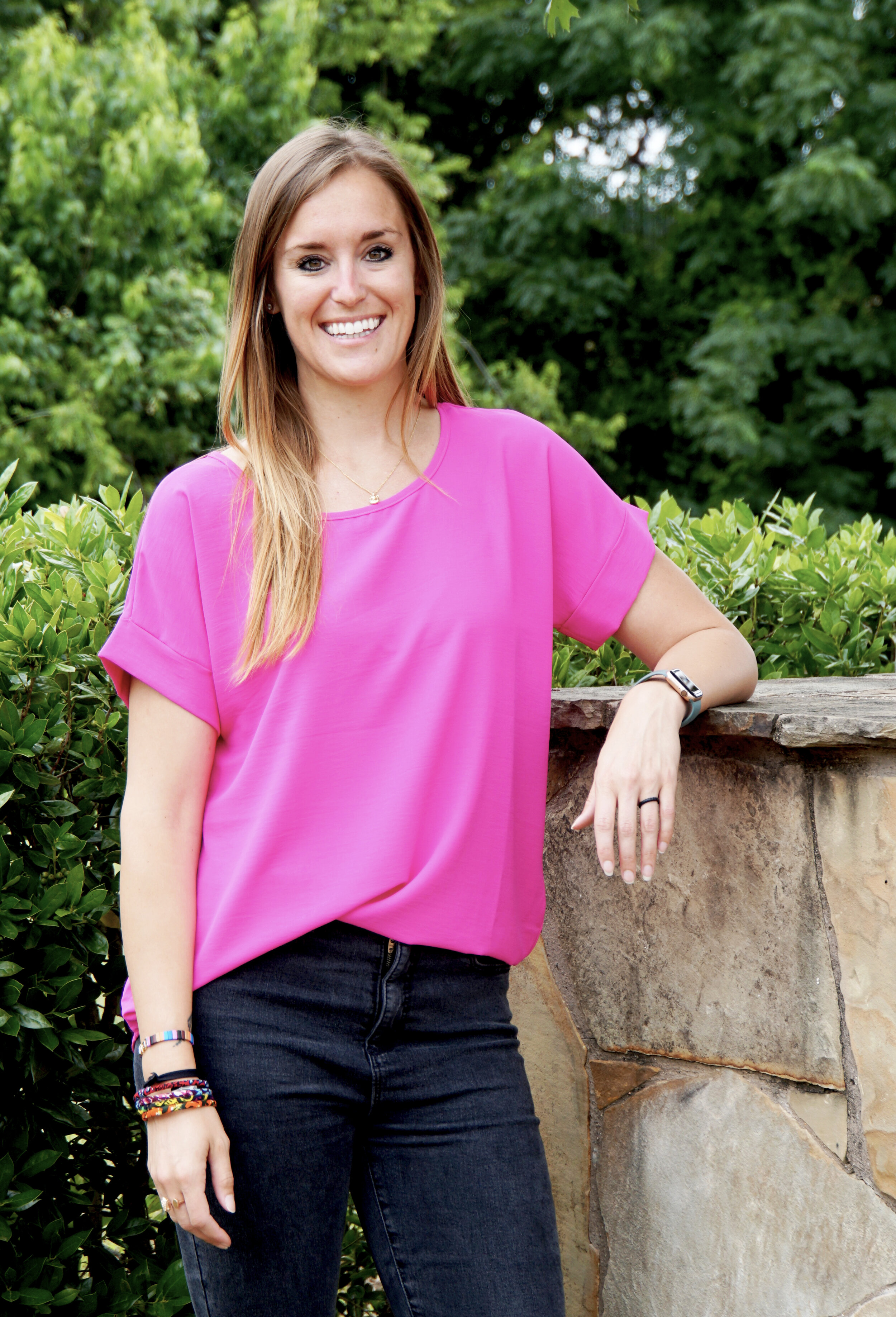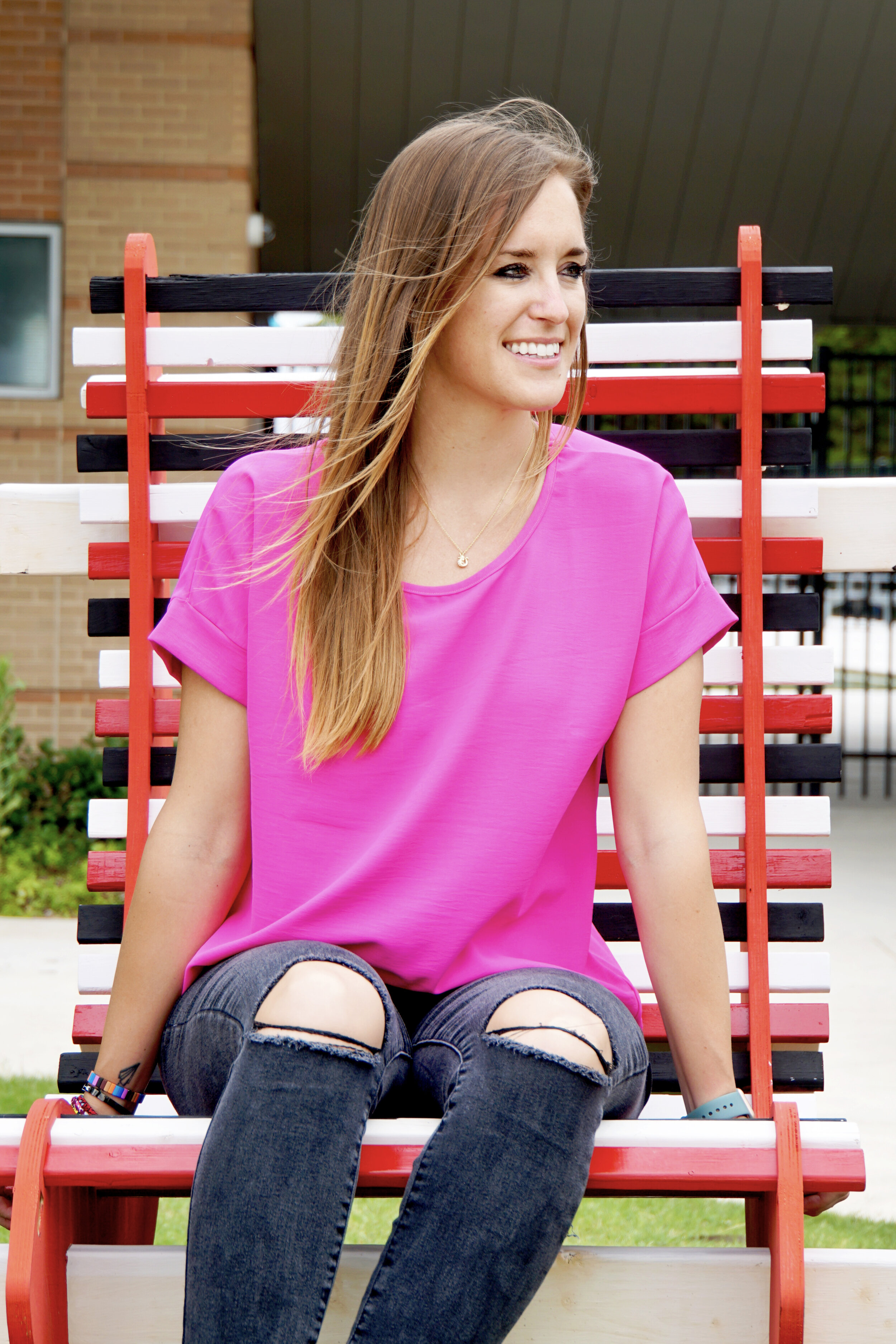Story by Mary Martin. Photos by Liliana Banta.
The neighborhoods of southern Dallas began as an assignment for Christie Myers. In 2010 she made the move from Flint, Michigan, to North Texas, starting with a job at the Dallas Regional Chamber, and in 2012, taking on a community-focused role for Dallas Independent School District. “At first the families in South Dallas were hesitant,” says Christie. “They saw me as the next young white woman with a needs assessment, just like the other 27 people who showed up asking about their needs but doing nothing about it.”

But Christie is about action. Her work gathering real stories from families in South Dallas as part of Dallas ISD’s Future Facilities Task Force, helped to pass a 1.6 billion dollar bond proposal, earning her a spot on Superintendent Mike Miles’ team for the duration of his tenure. As Dallas leadership began noticing Christie’s passion and dedication to listening well and creating solutions, she was invited to the second class of the Mayor’s Star Council under Mayor Rawlings. It was there that Christie met then Chief-of-Staff Adam McGough, who told Christie that Mayor Rawlings was interested in starting a student leadership academy, the Mayor’s Rising Star Council, and wanted Christie to help launch the program. Seven years later, the academy is thriving as teens from across the city have built relationships that break neighborhood barriers. And while Christie is still involved with the Mayor’s Rising Star Council and other initiatives with Adam McGough and his work as District 10 Dallas City Council representative, she is also focused on a brand new project that fills a significant healthcare gap in southern Dallas.
EdCor Health, where Christie now serves as Executive Director, is creating an integrated healthcare clinic in southern Dallas that will address primary care health concerns alongside mental and behavioral health, for both adults and children. Christie and her team are building partnerships with UT Southwestern for primary healthcare, Children’s Health for pediatric care, and Metrocare Services for mental and behavioral health. “I joined with Bob Mong, and Michael Sorrell and started approaching partners, telling them we had a crazy idea to build a clinic and we needed people who will raise their hands to do this together,” said Christie. “Almost two years later we are working with UT Southwestern and Big Thought and Children’s to truly live in one 40,000 SF facility with mental, behavioral, and primary care.”
From her experience with Dallas ISD, Christie didn’t only gather ideas from the major partners, but from stakeholders at every level. “We met with community members throughout the area and paid them $50 for an hour of their time, just like we would for a consultant, because they are helping us make our project successful.” It was during those conversations that the project concept went from a site-map with one building for each kind of care, to one large building that contains all services. “One of our community members pointed out that if our goal was to remove stereotypes, then everyone needs to go through the same front door and check-in process,” says Christie. “For people who have never had access to medical services, a doctor’s office can be intimidating, and even more so for mental healthcare.”
With a vision for a state-of-the-art, integrated health clinic, the team at EdCor Health is taking a new approach to low-cost healthcare options. Rather than relying on volunteer medical staff with a high turnover, EdCor is planning for full time medical staff so patients can build trust and continuity. There are also plans to include a barbershop in the EdCor space, creating a safe place for the conversation around mental health to begin.
“Access is so important,” says Christie, highlighting the gap not only in medical care, but in mental health resources in the southern sector of Dallas. “We can’t just talk about crisis, we have to talk about prevention. We are looking at communities that have been disinvested—communities that have been left behind. They should get the same access as other neighborhoods. And until we humanize, with person-first language and thinking around homelessness, mental health, we will not be able to solve the problem.” With access as a primary goal, the clinic will be positioned near public transit, with proximity to other community resources.
The EdCor Health facility is currently in design stage, with plans to open its doors in fall of 2021. Christie and her board of directors are working through short-term launch issues like location and staffing, while also considering how to fund a long-term model that can be replicated in other cities. Christie is well-aware of the racial and economic hurdles that face communities across the country as they look for mental health resources. “Until we are willing to undo the narrative in our brains and admit that my mental health is no different than your mental health, nothing will change,” Christie says. “As a white woman in North Dallas, I just have a different avenue of access. If I have a mental health crisis, I go to my therapist, I don’t go to jail.” Creating a new cultural narrative, along with high-quality, integrated medical care in underserved neighborhoods, is a big job, but Christie and the EdCor partners are taking the necessary steps to make it possible.
If you or someone you know is experiencing a mental health crisis or suicidal thoughts, please dial 1-800-273-8255 for the National Suicide Prevention Lifeline or text TALK at 741741. For help finding a mental health resource, call the Here for Texas Mental Health Navigation Line at 972-525-8181.
